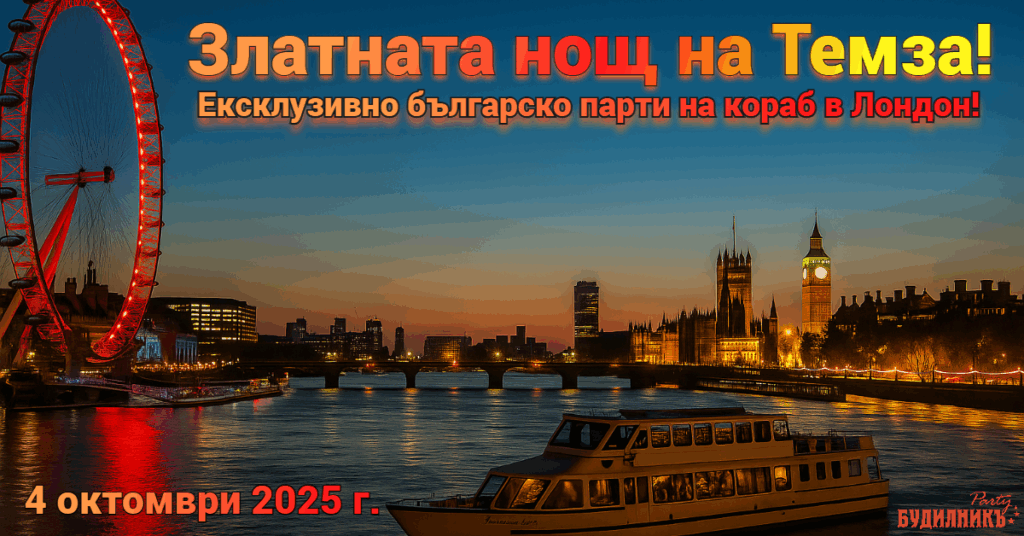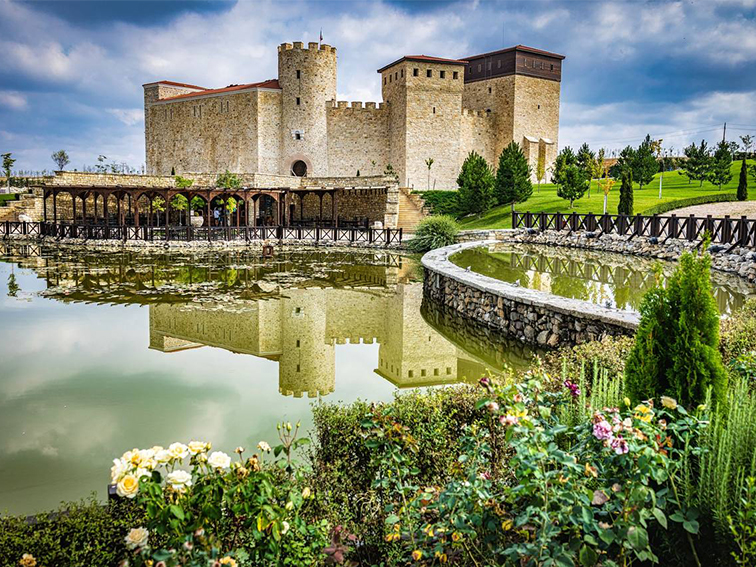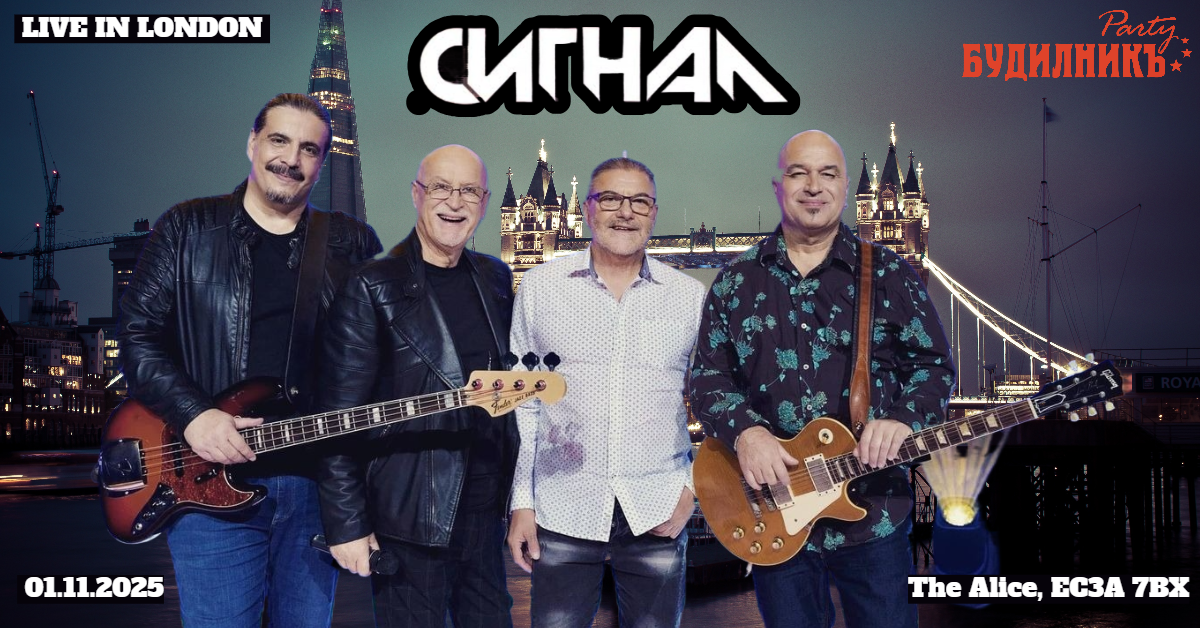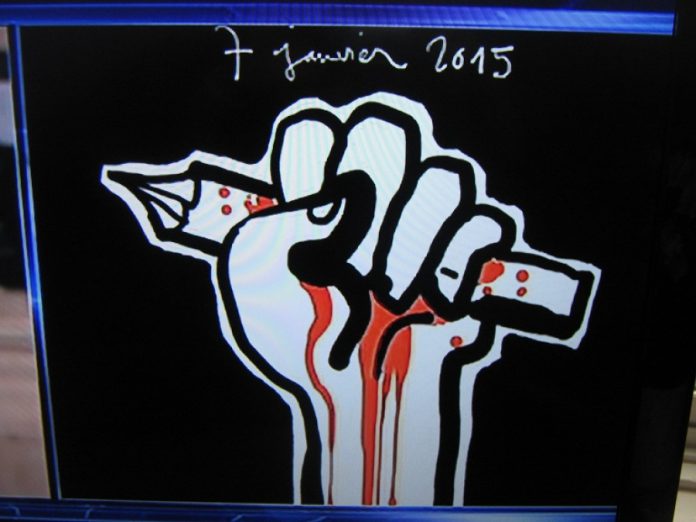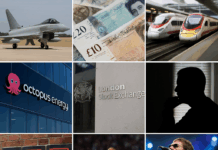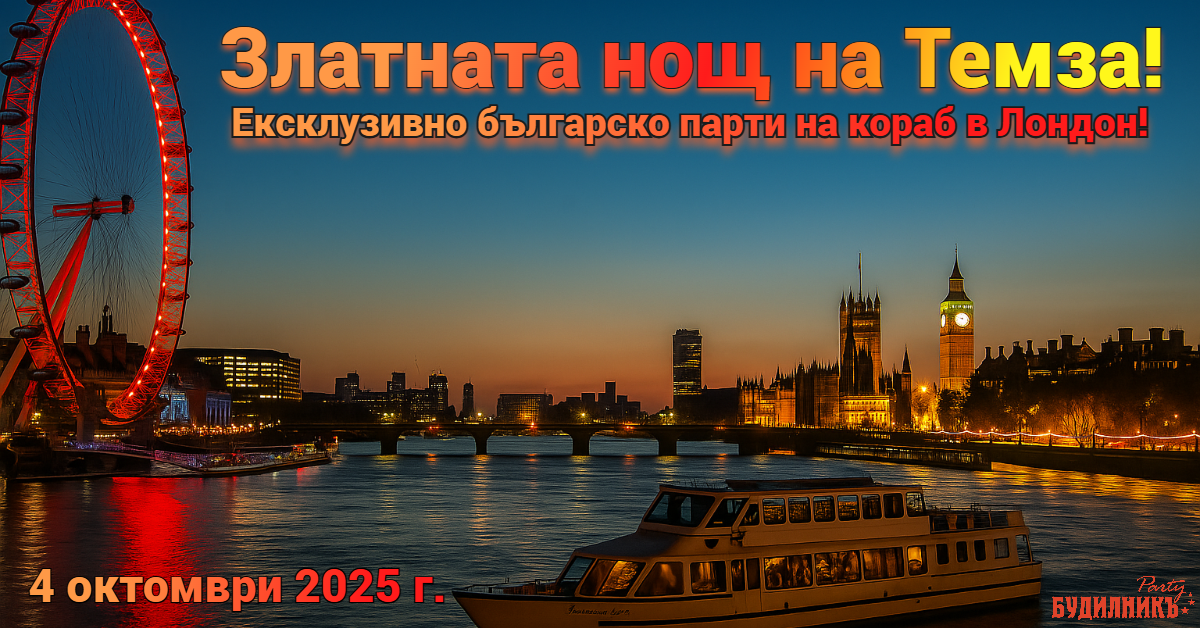By Rumy Vakarelska
The assassination of eight journalists at the iconic French weekly cartoon magazine Charlie Hebdo, who were killed together with three civilians and one policeman in bright daylight by French-born terrorists of Algerian descent on 08.01. 2015 in the name of Islam is likely to create a watershed in the place of journalism in modern society.
The magazine editors and staff of world known cartoonists lost their lives because they represented French secular values. A number of French analysts, politicians and journalists since yesterday stated that this was an attack on their secular, not their Christian values, which made the attack look even more barbaric.
The Charlie Hebdo creators essentially died because they represented publicly the beliefs of French democracy, which has celebrated freedom of speech since the 18th century, as these values were embedded in the making of the French Republic. Freedom of speech allows a satirical context for any political or religious events and the people in them and is widely accepted in Europe.
This was the worst terrorist attack that France suffered in 40 years and is being compared to the tragic events of 9/11 in New York, as journalists and innocent people have been killed in their own country, not in a foreign battlefield, but at work, close to their homes.
Meanwhile, Europe is currently shaken by anti-Islamisation protests. Namely, in Germany, the city of Dresden went dark in the first days of 2015, whereby the German public, not a right wing party, made yet another statement that they are against a further impact of Islam and Germany’s own Muslim population on the way of life in their country.
Following the tragedy in Paris yesterday, a French policewoman was killed by armed men in the French capital on the following day, marking a deepening crisis in the country which has declared 8 January as a day of national mourning and a high security alert that has also been extended to London.
According to the immigration correspondent of the French broadsheet, Le Monde, France receives 200, 000 new immigrants new year, most of them from North Africa. France is also the country with the highest Muslim population in the EU of nearly 5 million, exceeding that in Germany, Britain and Spain.
For years the French have adored in many ways African culture and traditions and have taken good care of their Musee d’Afrique in Central Paris. As a former colonial power, it has inherited and embraced African traditions and religions.
The reason why this atrocity against French values cannot be accepted is that France suffered a loss because of its secular values, not because of its Christian values. It is because of its secular values that the French government limited wearing burkas in public.
In addition, the freedom of speech, especially in a cartoon form, is deeply embedded in the fabric of the French Republic of 1789 and today’s French culture and society, which has accepted satire as a form of journalistic expression.
Following 07.01.2015, we can expect changing immigration policies in Europe, possibly a rise of the far-right once again, but also a backlash to UKIP’s ability to win UK voters as its main political arguments are based on opposition to the EU’s freedom of movement.
The German Chancellor Angela Merkel’s visit to the UK on the same day, who came to discuss David Cameron’s priorities on EU reform, will probably leave with new priorities on EU reform, requiring a higher level of solidarity among EU countries, not separatism, which David Cameron’s backbenchers demand.
The biggest economies in Europe at different levels and in different ways struggle to cope with globalisation and their open door policies for persecuted people from around the world. Following the tragedy in Paris, the EU’s priorities may finally become more balanced, moving from mainly the economy towards unity and its deepest interests and values such as societal accord.
Finding ways to deal with members of the Muslim diaspora’s second generation, some of whom turn to Jihadists, has now become the EU’s key priority.
Youths like the terrorists of Algerian decent in Paris now kill their own neighbours in their own birth country, while many from across Europe, including Bulgaria, which was hit by an unexpected immigration wave from Syria last year, have become Jihadists across the Middle East and parts of Africa.
A French analyst said that French journalism is more direct than the British, where journalists are trying harder not to offend anyone and this is also embedded in the UK legislation under which journalists operate here. But, that certainly does not justify any attempt at journalistic intimidation, not speaking about mass assassination. The next issue of Charlie Hebdo is coming out next Wednesday with a circulation of one million, while a number of new cartoons have sprung up all over the world, including the above notable piece by London-based French cartoonist Loic Secheresse.
Mostly, the need to raise the status of the journalism profession and find new ways to protect and help journalists do what they do best, may now finally come also to central government’s attention, changing the way they should be valued and remunerated as the long-term ‘key workers’ of the society, a title now given in the UK to mainly doctors, teachers and policemen.
An ‘A-Z to Life’ book sold in the UK’s major bookshops is defining Journalism as opposite to poetry, but dying in time of relative peace in the name of progressive societal values means exactly this. Clearly, the book has ignored the fact that journalists are the first writers of history, whatever it takes to do that.
